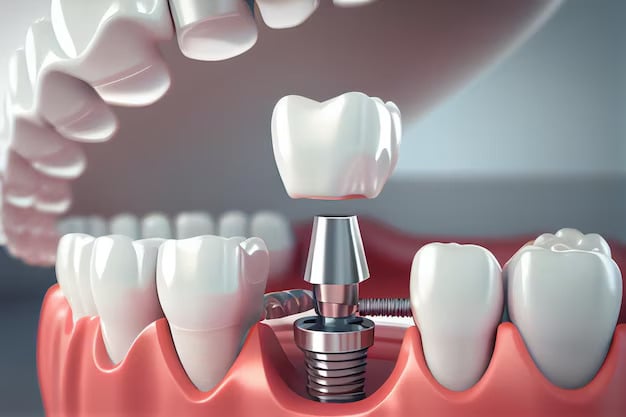Dental implants are a popular and effective solution for replacing missing teeth, providing a long-lasting and natural-looking restoration. If you’re considering dental implant surgery, understanding what to expect during and after the procedure can help alleviate any apprehensions and prepare you for a smooth and successful implant journey. In this informative article, we will walk you through the process of dental implant surgery, from the initial consultation to the post-operative recovery phase.
Initial Consultation And Treatment Planning
The dental implant process typically begins with an initial consultation with your dentist or oral surgeon. During this appointment, the dentist will evaluate your oral health, examine the area of the missing tooth, and assess the quality and quantity of the jawbone. X-rays or 3D scans may be taken to determine the optimal implant placement.
After the evaluation, the dentist will discuss the treatment plan with you, explaining the implant procedure, the number of implants needed, and any necessary preoperative preparations.
Dental Implant Surgery Procedure
On the day of the dental implant surgery, the dentist or oral surgeon will administer local anesthesia to numb the area where the implant will be placed. If you prefer, conscious sedation or general anesthesia may be available to ensure your comfort during the procedure.
The next step involves creating an incision in the gum tissue to access the underlying jawbone. A small hole is drilled into the bone to receive the dental implant. The implant, typically titanium, is carefully placed into the hole. After implant placement, the gum tissue is sutured back in place.
Healing Period And Osseointegration
Following the implant surgery, a healing period is necessary to allow osseointegration. Osseointegration is the process by which the dental implant fuses with the surrounding jawbone, providing a strong and stable foundation for the artificial tooth.
The healing period can vary from a few weeks to several months, depending on individual healing capabilities and the case’s complexity. During this time, it’s essential to follow post-operative instructions and maintain good oral hygiene to support successful osseointegration.
Placement Of The Dental Crown Or Prosthesis
Once osseointegration is complete and the dental implant has integrated with the jawbone, the next phase involves placing the dental crown or prosthesis on top of the implant. The crown is custom-made to match your natural teeth’ color, shape, and size, ensuring a seamless and natural-looking result.
Post-Operative Care And Recovery
After dental implant surgery, some temporary discomfort, swelling, and bruising in the treated area are normal. Your dentist will provide post-operative care instructions to help manage any discomfort and promote proper healing. Pain relievers and antibiotics may be prescribed to prevent infection and manage pain.
During the recovery period, it’s essential to:
- Avoid eating hard or crunchy foods that can put excessive pressure on the implant site.
- Refrain from smoking, as it can hinder the healing process.
- Practice good oral hygiene by brushing gently and avoiding the implant site until your dentist advises.
Follow-Up Appointments
Regular follow-up appointments with your dentist are crucial to monitor the progress of the implant and ensure that the implant and prosthesis are functioning correctly. Your dentist will check the implant’s stability, occlusion (how your teeth come together), and overall oral health to ensure the long-term success of the dental implant.
The Bottom Line
Dental implant surgery is a highly successful and reliable method for replacing missing teeth. Understanding the dental implant process, from the initial consultation to the post-operative recovery, can help ease any concerns and prepare you for a successful implant journey. With proper care and follow-up, dental implants can provide a long-lasting and natural-looking restoration, giving you the confidence to smile, eat, and speak with ease once again. If you’re considering dental implants, consult with your dentist to determine if you’re a suitable candidate and embark on the path to restoring your smile and oral function.





